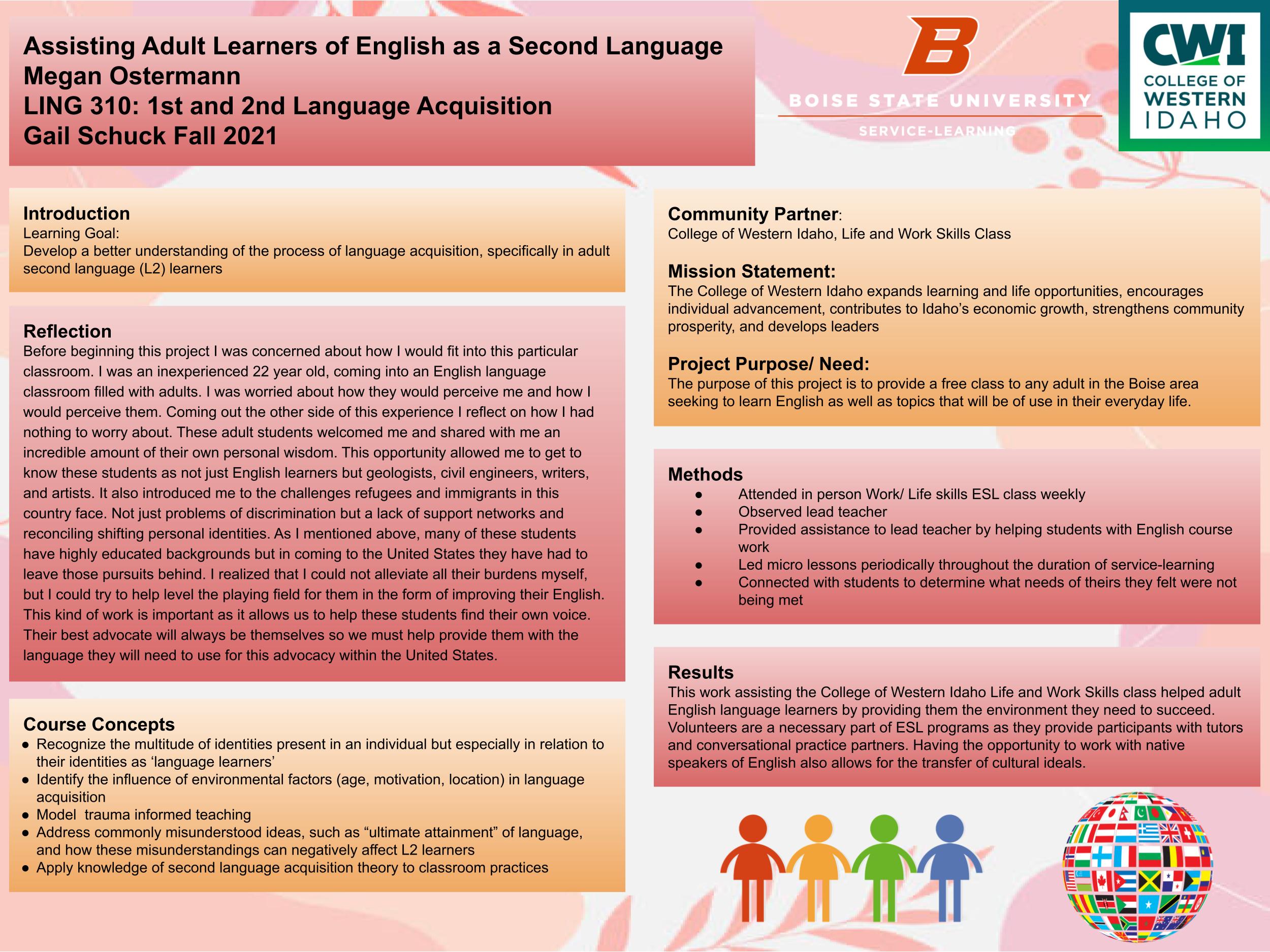Megan Ostermann
Dr. Gail Schuck – LING 310
College of Western Idaho, Life and Work Skills Class

Introduction
Learning Goal:
Develop a better understanding of the process of language acquisition, specifically in adult second language (L2) learners.
Reflection
Before beginning this project I was concerned about how I would fit into this particular classroom. I was an inexperienced 22 year old, coming into an English language classroom filled with adults. I was worried about how they would perceive me and how I would perceive them. Coming out the other side of this experience I reflect on how I had nothing to worry about. These adult students welcomed me and shared with me an incredible amount of their own personal wisdom. This opportunity allowed me to get to know these students as not just English learners but geologists, civil engineers, writers, and artists. It also introduced me to the challenges refugees and immigrants in this country face. Not just problems of discrimination but a lack of support networks and reconciling shifting personal identities. As I mentioned above, many of these students have highly educated backgrounds but in coming to the United States they have had to leave those pursuits behind. I realized that I could not alleviate all their burdens myself, but I could try to help level the playing field for them in the form of improving their English. This kind of work is important as it allows us to help these students find their own voice. Their best advocate will always be themselves so we must help provide them with the language they will need to use for this advocacy within the United States.
Community Partner: College of Western Idaho, Life and Work Skills Class
Mission Statement:
The College of Western Idaho expands learning and life opportunities, encourages individual advancement, contributes to Idaho’s economic growth, strengthens community prosperity, and develops leaders
Project Purpose / Need:
The purpose of this project is to provide a free class to any adult in the Boise area seeking to learn English as well as topics that will be of use in their everyday life.
Course Concepts
- Recognize the multitude of identities present in an individual but especially in relation to their identities as ‘language learners’
- Identify the influence of environmental factors (age, motivation, location) in language acquisition
- Model trauma informed teaching
- Address commonly misunderstood ideas, such as “ultimate attainment” of language, and how these misunderstandings can negatively affect L2 learners
- Apply knowledge of second language acquisition theory to classroom practices
Methods
- Attended in person Work/ Life skills ESL class weekly
- Observed lead teacher
- Provided assistance to lead teacher by helping students with English course work
- Led micro lessons periodically throughout the duration of service-learning
- Connected with students to determine what needs of theirs they felt were not being met
Results
This work assisting the College of Western Idaho Life and Work Skills class helped adult English language learners by providing them the environment they need to succeed. Volunteers are a necessary part of ESL programs as they provide participants with tutors and conversational practice partners. Having the opportunity to work with native speakers of English also allows for the transfer of cultural ideals.